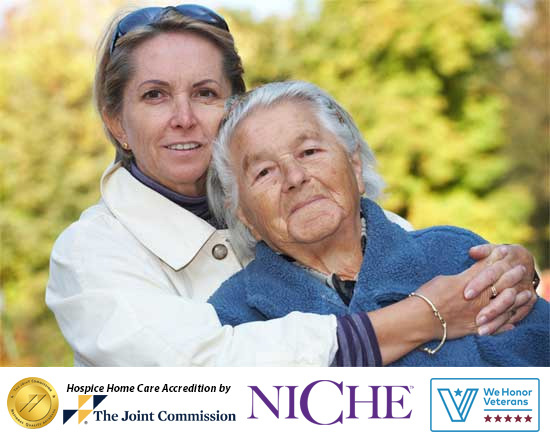by Rachel Stackhouse, TRU Clinical Educator
TRU Community Care (TRU) recently celebrated the first nurse graduate through our new nurse residency program. With a focus on hospice, palliative care, telemedicine, home health, and inpatient care, TRU’s New Graduate Nurse Resident Program offers additional training, clinical experience, and mentorship to recent nurse graduates to help build knowledge and competency during their first months of practice.
In the past, new graduates were not often hired for hospice work as they lacked the skills to work autonomously in the field. Instead, they were counseled to find their first job on a medical-surgical floor, generalized care unit, or long-term care facility, to get the most well-rounded experience. While this is still common advice, the reality is that more specialty areas of nursing are welcoming new graduates today – hospice among them. And while med-surg or long-term care are great environments for being exposed to various clinical skills, they are not what all nurses are passionate about. I’ll use my experience as an example:
While completing nursing school, I suspected the hospital was not for me, and that hypothesis was confirmed during my clinical rotations through the hospital. When I finally got to my hospice clinical rotation, I was in heaven! My life became whole when I got to care for those at the end of theirs. But when I graduated from school, I followed the advice given to so many nursing students: get a job in med-surg. I did, and I shriveled. I quickly realized this was the wrong job for me. Hospice called out to me for several years before I finally felt I had the experience needed for it. That was seven years ago, and I cannot imagine being satisfied in any other nursing specialty.
TRU’s year-long residency is divided into three trimesters. During the first two, the resident works alongside an experienced nurse — four months at TRU’s inpatient unit followed by four months in the field (in-home and facility settings). At TRU’s inpatient unit, residents develop skills in managing symptom crisis. This may be pain crisis, agitation, or wound care challenges. They also develop a thorough knowledge of hospice medications and how to go into stressful or tense situations in a way that’s helpful to the patient and family. While in the field, they polish their assessment skills, time management, family care-planning conversations, and learning when to ask for help. During these months, residents come to embrace mistakes as learning opportunities, find areas of growth, catch the near-miss, and identify when they’re bumping up against the edge of their scope of practice.
The final four months of the residency are spent in independent practice, during which the resident gains further confidence and competency, while still having all the resources at their fingertips as support. During these 12 months, the resident is enrolled in the University of Iowa’s virtual residency program with a cohort of new graduates across the country. The educational program covers topics such as quality, evidence-based practice, critical thinking, leadership, work-life balance, and more. With their cohort, they share struggles and support from the techniques they’ve been perfecting in their own practice.
The World Health Organization, the Institute of Medicine, and the US Department of Labor have all published articles detailing the value of supporting newly graduated nurses. * In an article titled, “Nurse Residency Programs: Providing Organizational Value,” the Delaware Journal of Public Health reviewed this data and discussed what makes a valuable Residency Program1. The authors state,
“…a healthy work environment is essential to retain employees. Nurse residency programs emphasize enculturation to practice area and organizational culture and prioritizes relationship building. This type of program drives job satisfaction despite the challenges of constant workforce turnover and stressors thereof. Finally, engaged nurses who have successfully transitioned into their new role are prepared with both confidence and competence to deliver quality patient care.”
This is why we’ve embraced the nurse residency program. TRU’s culture is one of collaboration and relationship-building. Though workforce turnover and stressors in the field abound, we relish the prospect of helping each new nurse find their footing and the privilege of setting a sturdy foundation for these nurses, not just for the benefit of TRU but for the whole nursing community. This is just one more way that TRU is caring for our community.
Asked what advice she’d have for a nurse fresh out of school, our new nurse residency graduate replied, “Don’t be afraid. If you have a heart for hospice, just go for it. You’ll enjoy it and be happier doing what you love.”
If you’re a nursing student a few years from graduation, TRU welcomes you to explore hospice via externships and internships. If you’re a new graduate nurse debating jumping into hospice, I say jump! When the time comes, we will be here to guide you into sound practice and a fulfilling career.
*If you’re interested in more research, follow the cited source below and refer to the many documents listed in their references.
- 1. Sutor, A., & Painter, J. (2020). Nurse residency programs: Providing organizational value. Delaware Journal of Public Health, 6(1), 58–61.

